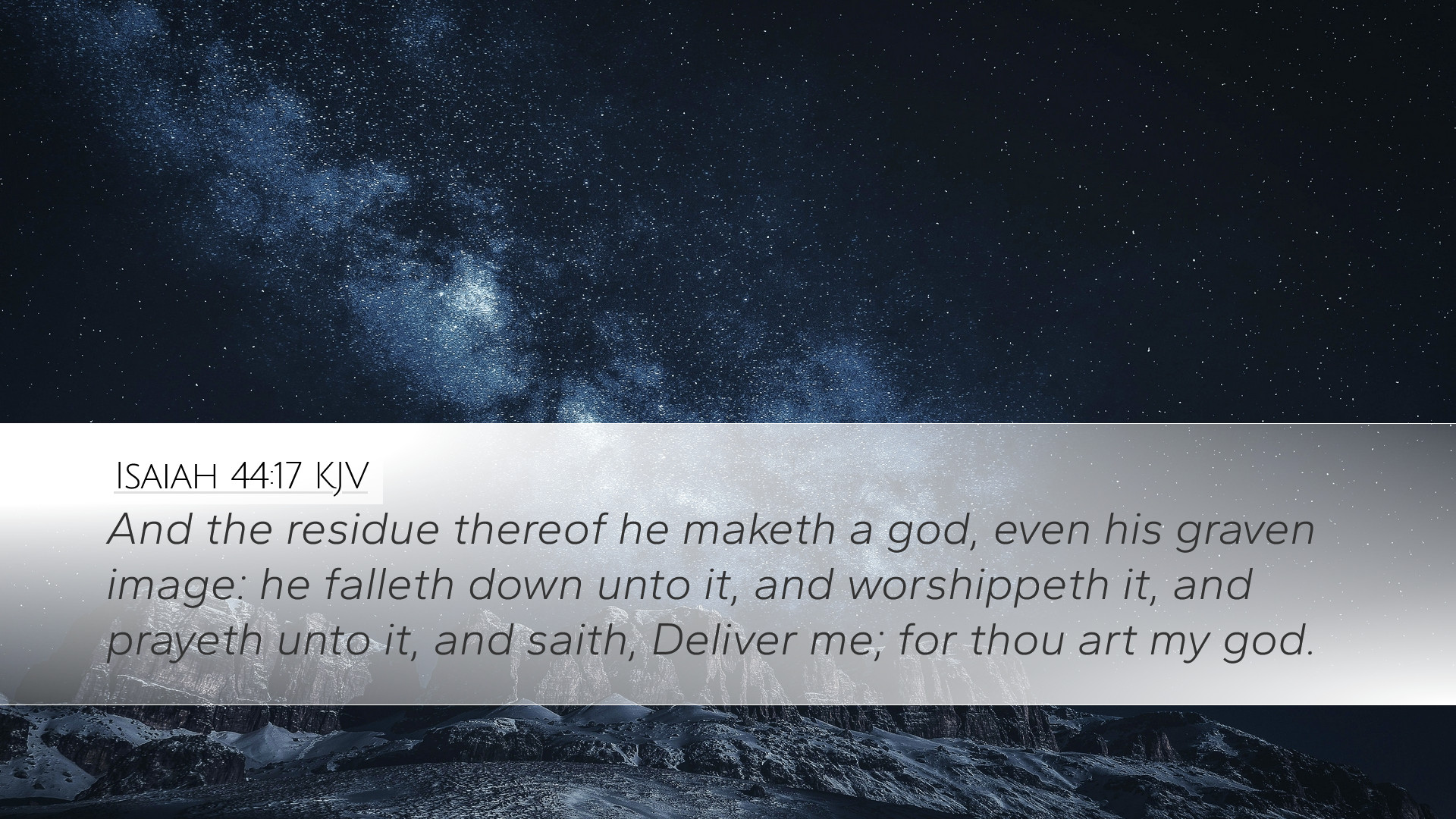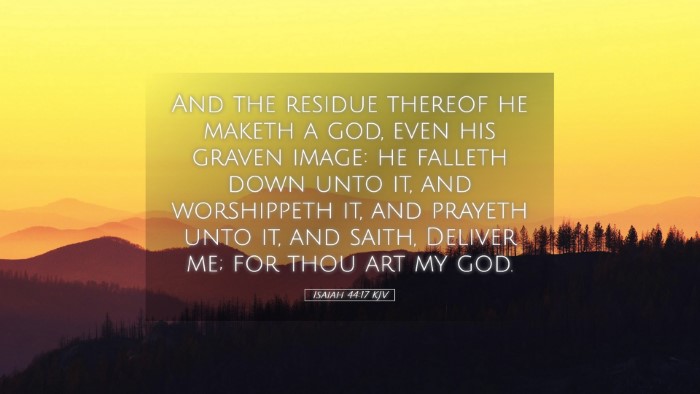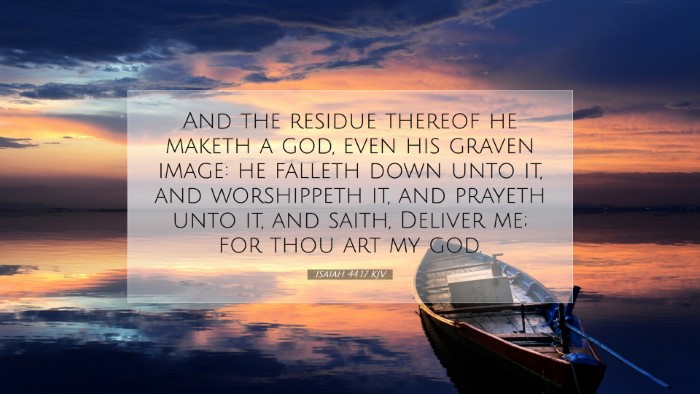Isaiah 44:17 - Commentary and Insights
Verse: "And the residue thereof he maketh a god, even his graven image: he falleth down unto it, and worshippeth it, and prayeth unto it, and saith, Deliver me; for thou art my god."
Introduction
The verse Isaiah 44:17 encapsulates a profound discourse on the folly of idolatry, which is a recurring theme in the prophetic literature of the Old Testament. Through this commentary, we will explore the insights from various public domain commentaries such as Matthew Henry, Albert Barnes, and Adam Clarke. The goal is to provide a comprehensive understanding suitable for pastors, students, theologians, and Bible scholars.
The Context of Isaiah 44
Isaiah 44 is set against the backdrop of the Babylonian exile, a time when the Israelites faced the temptation to adopt the practices of surrounding cultures, including idol worship. The prophet Isaiah speaks out against these practices, urging the people to remember their Creator and the absurdity of idolatry.
Analysis of Key Terms
- Residual Material: The "residue" or leftover material signifies the remnants of resources that people do not consider valuable for practical use but instead repurpose into objects of worship.
- Graven Image: This term highlights the craftsmanship involved in idol creation. These gods are man-made, lacking power and divinity, standing in stark contrast to the true God who is creator of the universe.
The Absurdity of Idolatry
According to Matthew Henry, this verse illustrates the folly in those who create gods from material that is ultimately useless. He notes that the same hands that create graven images are the hands of those who are enslaved by their own creations.
Albert Barnes further elaborates that the act of worshiping an idol made from one's own hands showcases a rejection of true divinity. He emphasizes the powerlessness of idols, suggesting that they are incapable of delivering those who invoke them.
Worship and Submission
The phrase "he falleth down unto it" signifies an act of submission and reverence, which is directed toward an object devoid of life. Adam Clarke points out that this demonstrates a profound spiritual blindness, where individuals offer prayers to what cannot hear, see, or respond, illustrating inner spiritual barrenness.
Clarke also highlights the contradiction present in this worship: a lack of awareness that one is invoking a mere image rather than the supreme, living God. This underlines the call for genuine relationship with God, as opposed to ritualistic practices that lead to spiritual emptiness.
The Desire for Deliverance
The cry "Deliver me; for thou art my god" reveals a deep human desire for rescue and support. Yet, this plea belies the reality that the deity being called upon is utterly incapable of providing any form of salvation.
Matthew Henry emphasizes that such cries reduce God to an object manufactured by human hands, reflecting a misplacement of faith. True deliverance, he argues, can only come from the Creator who possesses sovereign power over all creation.
Theological Implications
This verse serves as a reminder of the fundamental tenet of monotheism: that there is one true God who should be worshiped and relied upon. The contrast between the living God and lifeless idols has significant theological implications, especially regarding the nature of God in relation to humanity.
Albert Barnes notes that this passage illustrates the folly of idolatry as it leads to a collapse of true worship and a dire spiritual state for the individual. He posits that the neglect of a relationship with God can lead to dependence on empty substitutes.
Conclusion
Isaiah 44:17 encapsulates a powerful warning against the perils of idolatry while reminding believers to anchor their faith in a living God capable of genuine deliverance. As we reflect on this verse, it calls for self-examination and encourages us to evaluate what we may inadvertently place our trust in.
This commentary synthesizes critical insights from Matthew Henry, Albert Barnes, and Adam Clarke, offering a multi-faceted perspective on the profound truths embedded in Isaiah’s message. Engaging deeply with this text can help us cultivate a more authentic faith that transcends the empty promises of worldly idols.


